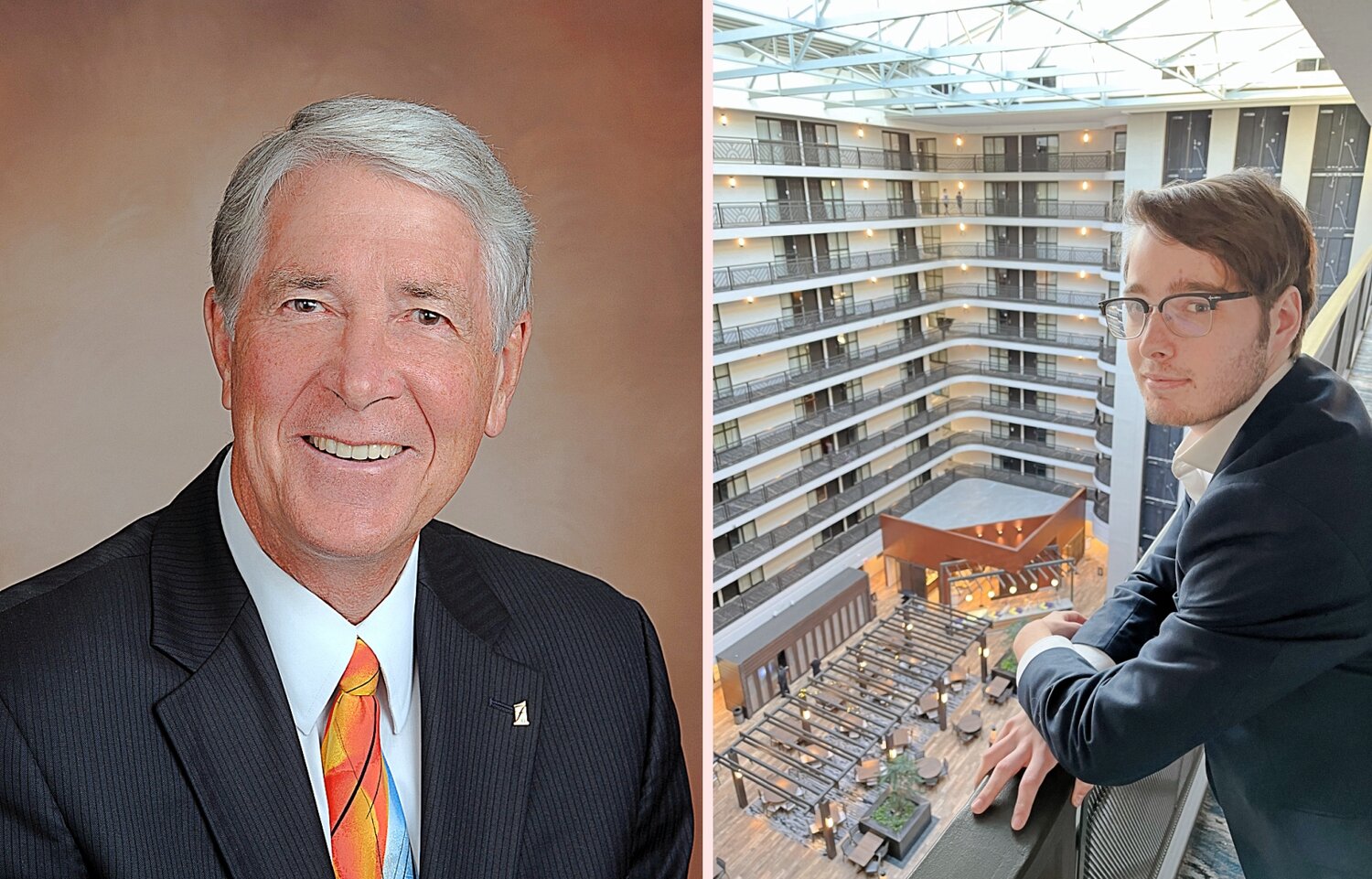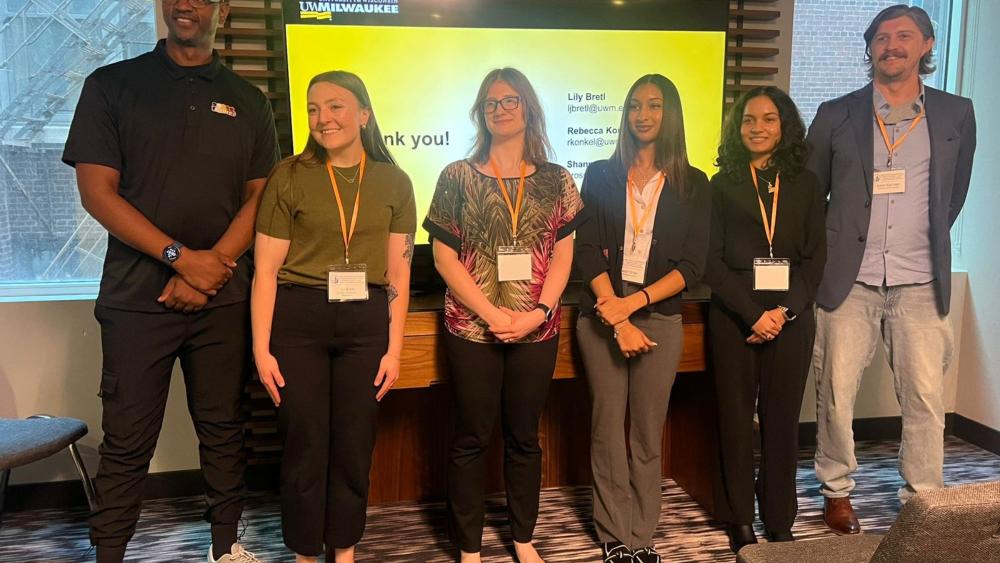Brookings Human Rights Commission honors Van Fishback, Thomas Reynolds – Brookings Register

Report on the 2025 Brookings Mayor’s Human Rights Awards and Alignment with Sustainable Development Goals
The Brookings Human Rights Commission has identified the recipients for the 2025 Mayor’s Awards. The honorees, Van Fishback and Thomas Reynolds, are recognized for significant efforts in human rights that directly support the United Nations Sustainable Development Goals (SDGs). The awards ceremony is scheduled for December 3 at the Dacotah Bank Center.
Van Fishback: Dorothy and Eugene T. Butler Human Rights Award
Mr. Van Fishback is the recipient of the 26th annual Dorothy and Eugene T. Butler Human Rights Award. This award acknowledges his extensive support for Native American reconciliation projects, which are critical to advancing social equity and justice.
Contributions to Sustainable Development Goals
- SDG 10 (Reduced Inequalities) & SDG 16 (Peace, Justice and Strong Institutions): Mr. Fishback played an integral role in fostering reconciliation following the 1990 “Year of Reconciliation.” His involvement with the Brookings Reconciliation Council has worked to address historical conflicts and promote understanding between Native American and non-Native citizens, thereby reducing inequalities and building peaceful, just institutions.
- SDG 4 (Quality Education): His commitment to inclusive and equitable education for indigenous communities is demonstrated through several key initiatives:
- Establishment of the Native American Student Emergency Fund at South Dakota State University (SDSU).
- Creation of a book collection and distribution program for reservation schools.
- Provision of a campus house to serve as the first Native American student center at SDSU.
- Sustained support for the Oak Lake Retreat for Tribal Writers and the subsequent Oceti Sakowin Writers Society, which preserves cultural history and produces vital educational texts.
- SDG 1 (No Poverty) & SDG 5 (Gender Equality): Mr. Fishback addressed economic barriers through an automobile distribution program that supported Native American students and single mothers attending tribal colleges, enhancing their access to educational and economic opportunities.
- SDG 17 (Partnerships for the Goals): His work reflects a commitment to global partnership, evidenced by his participation in numerous mission trips to countries such as Haiti and Nicaragua.
Thomas Reynolds: Youth Award
Mr. Thomas Reynolds is the recipient of the Youth Award for his leadership and advocacy in establishing a street in honor of Dr. Martin Luther King Jr. His vision has reinforced the community’s commitment to equality and justice.
Contributions to Sustainable Development Goals
- SDG 10 (Reduced Inequalities): Mr. Reynolds’ successful campaign to name a street after Dr. Martin Luther King Jr. is a significant action promoting social inclusion and combating discrimination. This initiative resulted in South Dakota becoming the 42nd state with a street named for the civil rights leader, providing a lasting public tribute to the fight for equality.
- SDG 16 (Peace, Justice and Strong Institutions): By mobilizing community and university support and presenting a formal proposal to the City Council, Mr. Reynolds strengthened local governance and civic engagement. The unanimous approval of the proposal demonstrates the city’s commitment to building a more inclusive and just society.
- SDG 11 (Sustainable Cities and Communities): The dedication of Dr. Martin Luther King Jr. Way in Pioneer Park makes a public space more inclusive and representative of the values of courage and compassion. This contributes to the development of sustainable communities that honor diverse histories and foster a sense of belonging for all residents.
Sustainable Development Goals (SDGs) Addressed in the Article
SDG 4: Quality Education
- The article highlights Van Fishback’s extensive work to support the educational needs of Native American students. This includes the creation of the Native American Student Emergency Fund at South Dakota State University (SDSU), a book collection and distribution program for reservation schools, and an automobile distribution program to help students attend classes. These actions directly contribute to ensuring inclusive and equitable quality education.
- Support for the Oak Lake Retreat for Tribal Writers and the Oceti Sakowin Writers Society promotes education that appreciates cultural diversity and preserves cultural history, aligning with the goal of providing holistic and culturally relevant education.
SDG 10: Reduced Inequalities
- The central theme of the article is the recognition of efforts to reduce inequalities. Van Fishback’s work is focused on addressing historical conflicts and providing support for Native Americans, a group that has historically faced significant inequalities. His involvement in the Brookings Reconciliation Council is a direct effort to foster understanding and reduce social division.
- Thomas Reynolds’ initiative to name a street after Dr. Martin Luther King Jr. addresses the inequality of representation and recognition. By ensuring a civil rights leader is honored, he worked to reaffirm the community’s commitment to justice and equality for all, irrespective of race or origin.
SDG 16: Peace, Justice and Strong Institutions
- The article discusses the Brookings Human Rights Commission, an institution dedicated to promoting human rights. The awards themselves are a mechanism for strengthening justice and recognizing peace-building efforts.
- Van Fishback’s involvement in the “Year of Reconciliation” and the subsequent Brookings Reconciliation Council directly relates to promoting peaceful and inclusive societies by addressing historical conflicts.
- Thomas Reynolds’ successful advocacy demonstrates an inclusive and participatory decision-making process. He garnered community support and worked through official channels (Park and Recreation Advisory Board, City Council) to achieve a policy outcome, highlighting the function of strong and responsive local institutions.
SDG 11: Sustainable Cities and Communities
- The efforts described in the article contribute to making the city of Brookings a more inclusive and sustainable community. Thomas Reynolds’ work to name a street in Pioneer Park after Dr. King makes a public space more symbolically inclusive and representative of the community’s values.
- Van Fishback’s support for the creation of the first Native American student center on the edge of the SDSU campus helps build inclusive community infrastructure. Furthermore, his support for the Oceti Sakowin Writers Society and the Center for American Indian Research and Native Studies helps to protect and safeguard the cultural heritage of the region’s indigenous people.
Specific SDG Targets Identified
-
Target 4.5: Ensure equal access to all levels of education and vocational training for the vulnerable, including… indigenous peoples.
This target is directly addressed by Van Fishback’s initiatives, such as the Native American Student Emergency Fund, book and automobile distribution programs for students, and the establishment of a Native American student center, all of which are designed to remove barriers and ensure Native American students have equal access to education.
-
Target 10.2: Empower and promote the social, economic and political inclusion of all, irrespective of… race, ethnicity, origin…
Both awardees’ work aligns with this target. Fishback’s decades of support for Native American projects empower and promote the social and educational inclusion of this group. Reynolds’ campaign to honor Dr. King promotes the values of racial inclusion and strengthens Brookings’ reputation as an inclusive community.
-
Target 16.7: Ensure responsive, inclusive, participatory and representative decision-making at all levels.
The process undertaken by Thomas Reynolds is a clear example of this target in action at the local level. The article details how he garnered community support, presented a formal proposal to a city advisory board, and made a compelling presentation to the City Council, which then unanimously approved the measure. This reflects a responsive and participatory governance model.
-
Target 11.4: Strengthen efforts to protect and safeguard the world’s cultural and natural heritage.
Van Fishback’s logistical, administrative, and financial support for the Oak Lake Retreat for Tribal Writers and the Oceti Sakowin Writers Society directly contributes to this target. The article notes that the society creates “important American Indian Studies texts” and that a documentary film about it has been “invaluable in preserving the Society’s history,” which are tangible efforts to safeguard cultural heritage.
Indicators for Measuring Progress
-
Implied Indicator for Target 4.5: The establishment and operation of programs aimed at supporting students from vulnerable groups.
The article does not provide quantitative data, but it mentions the existence of specific programs that serve as indicators of progress. These include the “Native American Student Emergency Fund,” the “Book collection and distribution program,” and the “Automobile distribution program.” The conversion of a house into a “Native American student center” is another concrete indicator.
-
Implied Indicator for Target 10.2: The number of people from specific groups benefiting from inclusion-focused initiatives and the level of institutional support for such initiatives.
A qualitative indicator is provided in the quote from Charles Woodard, who states that “hundreds and perhaps thousands of deserving people have benefited” from Fishback’s work. Additionally, the “unanimous” approval by the City Council for Reynolds’ proposal is a strong indicator of institutional commitment to inclusion.
-
Implied Indicator for Target 16.7: The existence of formal processes for public proposals and their adoption by local government.
The article describes a clear pathway for civic participation: Reynolds presented a “formal proposal to the city’s Park and Recreation Advisory Board,” which then made a recommendation to the “City Council for consideration,” leading to a final vote. This documented process serves as an indicator of a system for participatory decision-making.
-
Implied Indicator for Target 16.b (Promote and enforce non-discriminatory laws and policies): The adoption of policies and symbolic acts by public institutions that promote non-discrimination and inclusivity.
The official dedication of “Dr. Martin Luther King Jr. Way” is a tangible policy outcome. The article notes that this action made “South Dakota the 42nd state to name a street after King,” which can be measured and serves as a clear indicator of a policy being enforced to promote inclusivity.
Summary Table: SDGs, Targets, and Indicators
| SDGs | Targets | Indicators Identified in the Article (Implied or Mentioned) |
|---|---|---|
| SDG 4: Quality Education | Target 4.5: Ensure equal access to all levels of education for vulnerable groups, including indigenous peoples. |
|
| SDG 10: Reduced Inequalities | Target 10.2: Empower and promote the social, economic and political inclusion of all, irrespective of race or ethnicity. |
|
| SDG 16: Peace, Justice and Strong Institutions | Target 16.7: Ensure responsive, inclusive, participatory and representative decision-making at all levels.
Target 16.b: Promote and enforce non-discriminatory policies for sustainable development. |
|
| SDG 11: Sustainable Cities and Communities | Target 11.4: Strengthen efforts to protect and safeguard the world’s cultural heritage. |
|
Source: brookingsregister.com
What is Your Reaction?
 Like
0
Like
0
 Dislike
0
Dislike
0
 Love
0
Love
0
 Funny
0
Funny
0
 Angry
0
Angry
0
 Sad
0
Sad
0
 Wow
0
Wow
0













































































